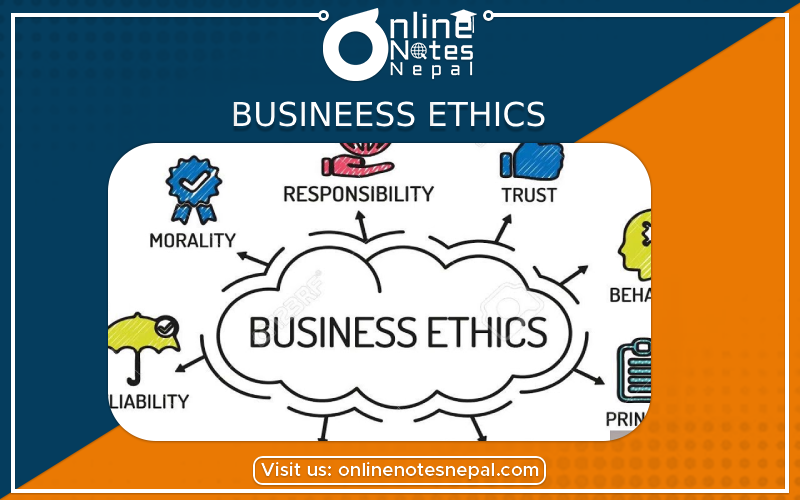Published by: Anu Poudeli
Published date: 17 Jul 2023

The concepts and standards that influence ethical behavior in the business environment are referred to as business ethics. It entails making moral and socially responsible decisions while executing commercial activity. Ethical corporate practice goes beyond simply following the rules and regulations. It necessitates that organizations examine the consequences of their actions on numerous stakeholders, such as employees, consumers, suppliers, communities, and the environment.
Here are a few significant subjects and dimensions of business ethics:
Corporate Social Responsibility (CSR):
CSR refers to a company's commitment to functioning ethically and sustainably while taking into account its influence on society and the environment. Fair trade, philanthropy, environmental sustainability, and employee well-being are examples of such practices.
Fairness and Transparency:
Ethical businesses try to be fair and transparent to all stakeholders. This includes fair competition, the avoidance of conflicts of interest, and the maintenance of transparency in financial reporting and disclosure.
Workplace Ethics:
Businesses should strive to establish an ethical workplace environment. This involves building a safe and respected workplace, promoting diversity and inclusion, ensuring equitable opportunities, and fostering a safe and inclusive workplace.
Consumer Protection:
Ethical firms prioritize their consumers' well-being and rights. They provide accurate information, deliver high-quality goods and services, and safeguard consumer privacy.
Environmental Sustainability:
Businesses are increasingly required to reduce their negative environmental impact. This can include lowering carbon emissions, preserving resources, developing sustainable practices, and supporting climate change activities.
Supply Chain Ethics:
Companies should strive for ethical supply chain management and sourcing. This includes ensuring that vendors and partners follow ethical standards such as fair labor practices and responsible raw material procurement.
Ethical Leadership:
Ethical company practices begin with leaders who set the tone and lead by example. Ethical leaders value integrity, honesty, and accountability, and they inspire their workers to do the same.
Ethical Decision Making:
Businesses are frequently confronted with ethical quandaries, and it is critical to have frameworks in place for making ethical judgments. These frameworks take into account the potential outcomes of activities, ethical values, and the impact on stakeholders.
Whistleblowing and Reporting:
Ethical companies set up systems for employees to report unethical behavior without fear of reprisal. Whistleblowing regulations shield employees who disclose wrongdoing.
Global Business Ethics:
To operate ethically in the global marketplace, it is necessary to recognize and accept cultural differences, to follow foreign laws, and to avoid unethical actions such as bribery and corruption.
Promoting corporate ethics is critical for establishing trust, preserving reputation, and achieving long-term success. Businesses can help to make the world a more equitable and responsible place by incorporating ethical practices into their operations.